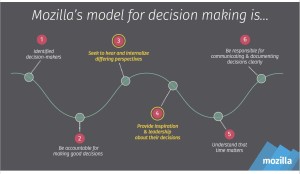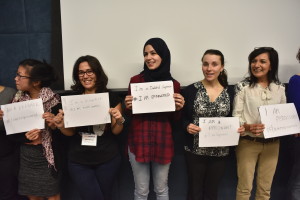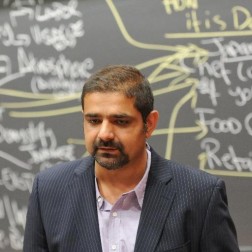Since the Mozilla Foundation was founded in 2003, we’ve grown remarkably – from impact to the size of our staff and global community. We’re indebted to the people whose passion and creativity made this possible, people like Joi Ito.
Joi is a long-time friend of Mozilla. He’s a technologist, a thinker, an activist and an entrepreneur. He’s been a Mozilla Foundation board member for many years. He’s also Director of the MIT Media Lab and was very recently appointed Professor of the Practice by MIT.
As Joi has become more deeply involved with the Media Lab over the past few years, we’ve come to understand that his most important future contributions are, rather than as a Board member, to spur innovative activities that advance the goals of both the Mozilla Foundation and the Media Lab.
The first such project and collaboration between Mozilla and the Media Lab, is an “Open Leadership Camp” for senior executives in the nonprofit and public sectors.
The seeds of this idea have been germinating for a while. Joi and I have had an ongoing discussion about how people build open, participatory, web-like organizations for a year or so now. The NetGain consortium led by Ford, Mozilla and a number of foundations, has shown the pressing need for deeper Internet knowledge in the nonprofit and public sectors. Also, Mozilla’s nascent Leadership Network has been working on how to provide innovative ways for leaders in the more publicly-minded tech space to learn new skills. All these things felt like the perfect storm for a collaborative project on open leadership and to work with other groups already active in this area.
The project we have in mind is simple:
- Bring together a set of experienced leaders from ‘open organizations’ and major non-profit and public sector organizations.
- Get them working on practical projects that involve weaving open techniques into their organizations.
- Document and share the learning as we go.
Topics we’ll cover include everything from design thinking (think: sticky notes) to working in the open (think: github) to the future of open technologies (think: blockchain). The initial camp will run at MIT in early 2017, with Joi and myself as the hosts. Our hope is that a curriculum and method can grow from there to seed similar camps within public-interest leadership programs in many other places.
I’m intensely grateful for Joi’s impact. We’ve been lucky to have him involved with Mozilla and the open Internet. We’re lucky to have him at the Media Lab and I’m looking forward to our upcoming work together.



